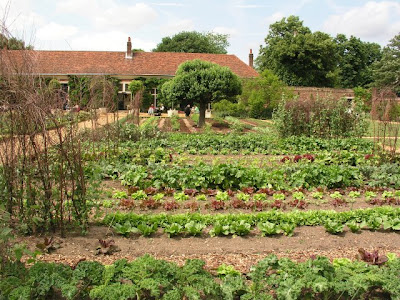Good morning.
It’s a partly cloudy day for Whitewater today, with only a small chance of rain, and a high temperature of eighty-six.
There’s a meeting of Whitewater’s Landmarks Commission this afternoon, at 5 p.m., in the city manager’s conference room at the municipal building. The agenda is available online.
Danielle Venton, writing at Wired Science, asks “Can Planting Vegetables in Vacant Lots Save Cleveland?” Cleveland needs help, as
Ten percent of Clevelanders have been diagnosed with diabetes, as compared to the national average of 8 percent, and more than a third are obese. Among cities with a population between 100,000 and 500,000, it is the seventh most dangerous, according to one crime ranking. Growing tomatoes and beans, and keeping bees and chickens, would change all this, [Parwinder] Grewal said. Studies have shown that gardens improve community health, reduce crime and increase property values.
Grewal is
….co-author of a study ?Can cities become self-reliant in food?? published July 20 in Cities.
?I was motivated to show how much food a city could actually produce by using this land,? he said. ?We could address global problems through this way of gardening.?
Urban gardening improves health, reduces pollution, and creates local businesses, Grewal said. The population of Cleveland, what Grewal considers a typical post-industrial city, peaked near one million in 1950, and has been declining since. Today scarcely half a million people call Cleveland home.
Previously, Drew Carey proposed libertarian solutions to help spark a renaissance in Cleveland. See the series, Reason Saves Cleveland with Drew Carey.
Gardens, including vegetable gardens, will always be an improvement over vacant, junk-filled lots, and can be an improvement over ordinary lawns, too. That’s why the war against gardens, or natural lawns, is more than just dull, middle-class bureaucrats trying to impose their ill-developed, uncreative sensibilities on others – that war holds down a city’s health and prosperity in proportion to its restrictions on liberty.

English garden via Wikimedia Commons.
